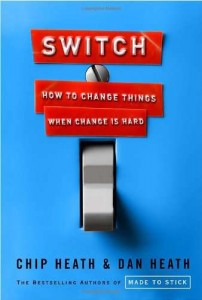 I am a big fan of the Heath brothers’ first book Made to Stick: Why Some Ideas Survive and Others Die and I am happy to report that they cialis 5mg have stepped up to the plate and hit another home run.
I am a big fan of the Heath brothers’ first book Made to Stick: Why Some Ideas Survive and Others Die and I am happy to report that they cialis 5mg have stepped up to the plate and hit another home run.
In “Switch,” the Heaths once again take the kernel of a good idea originated by someone else and build an expansive original work around it. In “Made to Stick” that kernel was Malcolm Gladwell’s concept of “stickiness,” what makes ideas memorable. In “Switch” the core is psychologist and The Happiness Hypothesis author Jonathan Haidt’s analogy for the mind: that the emotional side of our mind is like a headstrong Elephant, and the rational side of our mind is the guiding Rider.
The Rider holds the reins and seems to be the leader, but we all know what it’s like for an emotional Elephant to overpower a rational Rider. (For example, this is why many of us would say that a pint of Ben & Jerry’s ice
cream should be labeled one serving and not four. Once a worked up Elephant digs in, the Rider has a hard time reining her in. Um, speaking hypothetically, of course.)
Add in the third element to this
framework, the Path, and you have three elements that can be worked on to address change. “Switch” addresses each of these elements in detail; Directing the Rider, Motivating the Elephant, and Shaping the Path, bringing in research-tested solutions
and real-world success stories. What I liked best was the simplicity of many of the examples. To encourage people to “eat healthier,” an initiative that could go in so many directions, rather than doing something complicated like following an illogically-designed government “Food Pyramid,” a West Virginia initiative instead encouraged people to take one step, to buy 1% or skim milk. That is simple, and creates change at the level of purchasing behavior rather than altering drinking or eating behavior. (If the Ben & Jerry’s isn’t in the freezer in the first place, the Rider doesn’t have to worry about controlling the Elephant.) And by narrowing the change down to one action, that eliminated choice paralysis and ambiguity that arise with more complicated directives.
“Switch” is a book for anyone from the grassroots, to cubicle nation, to CEOs. Most of the examples consciously focus on people who needed to effect significant change with little power and few resources available to them. How could a low-level NGO employee make a difference in alleviating the malnourishment of Vietnamese children, in only six months? By finding “bright spots,” identifying children who were thriving, finding out what their mothers were doing differently, and spreading that knowledge to other families. Stories like this are both inspiring and practical for all of us. This is really what I appreciated most about “Switch.” I found myself taking notes that were not only about the book itself, but about how I could apply this knowledge to challenges I am working on. The Elephant-Rider-Path metaphor helped me see my own work in a new light. What more can a reader ask for?
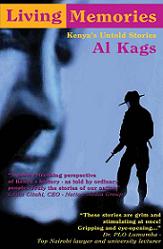 The author tells the stories of people over 65 years of age who lived during the pre-independence times.
The author tells the stories of people over 65 years of age who lived during the pre-independence times. 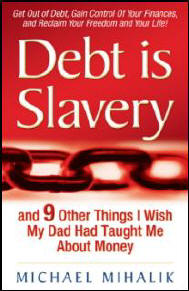 Great books are usually short, to the point, and interesting enough to cause even casual
Great books are usually short, to the point, and interesting enough to cause even casual 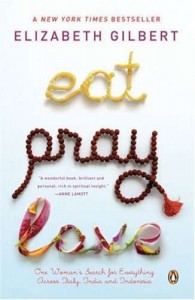 Here is a book that either changed people’s lives or irritated them. Count me among the latter.
Here is a book that either changed people’s lives or irritated them. Count me among the latter.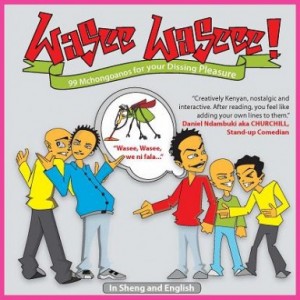 Mchongoanos are very much a part of our (Kenyan) culture today as they were all those years ago during my primary school days. And it’s not only school going kids who enjoy this form of art but adults with a youthful heart (and a sense of humour) as well.
Mchongoanos are very much a part of our (Kenyan) culture today as they were all those years ago during my primary school days. And it’s not only school going kids who enjoy this form of art but adults with a youthful heart (and a sense of humour) as well.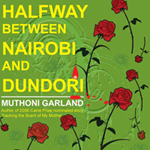 This is a book that takes through the up and downs of being Kenyan and
This is a book that takes through the up and downs of being Kenyan and 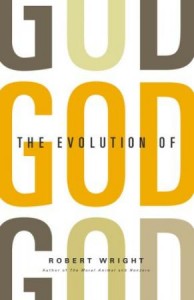 Robert Wright is an intellectually curious journalist and a fine writer whose previous books (The Moral Animal & Nonzero) I enjoyed. Wright’s new book explores the character of religion through history, and, marshalling scholarly research, shows how religious ideas developed in response to changing social and political circumstances. The explanations make no appeal to the supernatural. But Wright sees progress (however haphazard and intermittent) in
Robert Wright is an intellectually curious journalist and a fine writer whose previous books (The Moral Animal & Nonzero) I enjoyed. Wright’s new book explores the character of religion through history, and, marshalling scholarly research, shows how religious ideas developed in response to changing social and political circumstances. The explanations make no appeal to the supernatural. But Wright sees progress (however haphazard and intermittent) in 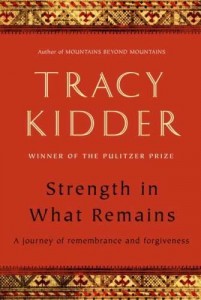 Tracy Kidder’s book, briefly, is the non-fiction tale of Deogratias. Raised in Burundi, Deo lives a nearly idyllic life until the outbreak of ethnic violence in his country replaces Wordsworth’s “of splendor in the grass, of glory in the flower” with a living hell that makes Dante’s Inferno look like a pleasant winter destination resort. Deo, a Tutsi third year
Tracy Kidder’s book, briefly, is the non-fiction tale of Deogratias. Raised in Burundi, Deo lives a nearly idyllic life until the outbreak of ethnic violence in his country replaces Wordsworth’s “of splendor in the grass, of glory in the flower” with a living hell that makes Dante’s Inferno look like a pleasant winter destination resort. Deo, a Tutsi third year 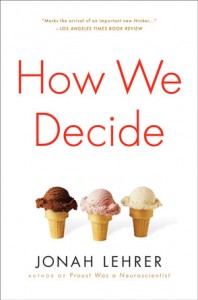 This book describes the neuroscience behind decision making, and in particular the various parts of the brain that are involved in different parts of problem analysis. It is filled with interesting examples from real world situations such as airplane near-disasters, poker playing, and Parkinson’s patients, and uses these examples to illustrate various parts
This book describes the neuroscience behind decision making, and in particular the various parts of the brain that are involved in different parts of problem analysis. It is filled with interesting examples from real world situations such as airplane near-disasters, poker playing, and Parkinson’s patients, and uses these examples to illustrate various parts